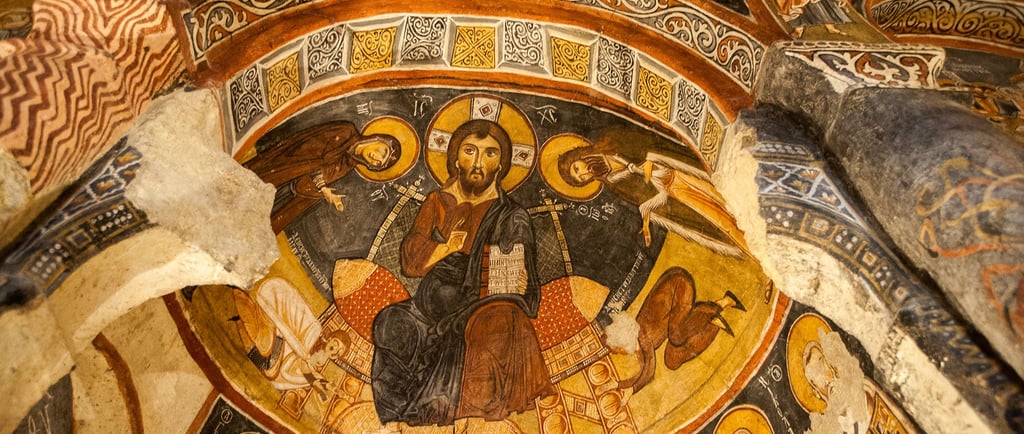Cultural Christians
The concept of "cultural Christians" has gained attention, especially within the context of the Catholic Church. This term often describes individuals who identify as Christians primarily through cultural, familial, or societal ties, rather than through a deep, personal commitment to the faith.
FAITH DISCUSSIONS


Cultural Christians: A Call for Authentic Engagement in Faith
In recent years, the concept of "cultural Christians" has gained attention, especially within the context of the Catholic Church. This term often describes individuals who identify as Christians primarily through cultural, familial, or societal ties, rather than through a deep, personal commitment to the faith. While the warmth of shared traditions and the comfort of cultural identity are undoubtedly valuable, we must ask: are cultural Christians fully engaging with the substance of Catholic liturgy and teachings? Or are they merely skimming the surface, attending services when convenient and failing to dive deeper into what their faith truly entails?
Understanding Cultural Christianity
Cultural Christians may attend Mass on Christmas and Easter, partake in certain sacraments, or display crucifixes in their homes, but their participation often lacks the fervor and understanding cultivated through active engagement with faith. This phenomenon is not unique to Catholicism; it can be seen across various Christian denominations. However, within the Catholic Church, the implications are profound.
The Catholic Church, with its rich history and liturgical depth, provides an invaluable structure designed to lead believers to a more profound encounter with God. Yet, many are content to take part only at a superficial level. Fr. Thomas Dubay, a noted theologian, once remarked, “The practice of faith often depends on an understanding of faith.” This wisdom prompts us to reflect: if many only practice a semblance of faith without genuine understanding, what does this mean for their spiritual lives?
The Challenge of Minimalism
The trend of minimalism in faith can be particularly concerning. In a world increasingly defined by convenience, where quick fixes dominate, this approach invites dangerous complacency. By relegating their engagement to the bare minimum—attending Mass just often enough to support a façade of faith—cultural Christians risk missing transformative experiences that deeper participation in the Church can offer.
Consider the powerful words of Pope Francis, who urged believers to “get out of ourselves” and live a faith full of action and purpose. Engaging with liturgical celebrations is not merely an obligation; it is an opportunity to connect with the divine, to understand the collective human experience, and to be part of something larger than oneself. Celebrating the Eucharist, for example, is not about a routine attendance but about joining in the mystery of Christ’s sacrifice and community. It is an encounter — one that demands commitment, struggle, and growth.
The Role of the Catholic Church
So, what is the role of the Catholic Church in this dynamic? Can the Church inadvertently encourage cultural Christianity by not challenging the status quo? In many parishes, it is common to find a relaxing of expectations, with a focus on inclusion and acceptance often leading to diminished emphasis on the necessity of a devout practice of faith.
This trend raises valid concerns. We must ask whether a focus on welcoming cultural Christians is inadvertently endorsing a faith that allows people to remain unchallenged and untransformed. As C.S. Lewis poignantly writes, “Christianity, if false, is of no importance, and if true, of infinite importance. The only thing it cannot be is moderately important.” The stakes of our faith cannot be overstated, and we must encourage conversations that address the depth of commitment needed for authentic Christianity to flourish.
Engaging the Cultural Christians
The challenge extends to cultural Christians themselves. How can they be encouraged to seek a deeper engagement with their faith? It starts with fostering community rather than detachment. Parish leaders and laypeople alike should create programs that invite exploration — Bible studies, retreats, and volunteer opportunities that are rooted in Catholic teaching can offer pathways into a richer spiritual life.
Moreover, education plays a crucial role. As the Catholic Church continues to adapt to contemporary challenges, educating believers on the liturgical calendar, the sacraments, and Catholic social teachings can provide a broader context. When people understand the "why" behind traditions and practices, the “how” of engagement often follows. Ignorance breeds apathy; knowledge tends to ignite passion.
Finally, maintaining a dialogue about the challenges of cultural Christianity could be vital. Rather than creating a dichotomy between cultural Christians and devout Catholics, we can look to bridge the gap with understanding. Engaging with each other's experiences, questions, and hesitations fosters a culture of growth rather than division.
A Call to Authenticity
In the end, the conversation surrounding cultural Christians is a call to authenticity. Becoming fully engaged in one’s faith does not simply add another obligation to a busy life; it fundamentally enriches existence. Individuals who move beyond cultural identification into authentic faith experience transformational encounters with God, which inform every aspect of their lives.
As we reflect on the nature of engagement with the Catholic Church, we must invite cultural Christians to consider: What journey have you embarked on? How can you go deeper? Though cultural connections provide a meaningful entry point into faith, they should propel us toward deeper engagement rather than allow us to linger at the surface.
Life in Christ, as St. Paul reminds us, is ultimately about surrendering to a greater purpose. "It is no longer I who live, but Christ who lives in me" (Galatians 2:20). This invitation to transformation is open to all, urging us to challenge ourselves and others against complacency.
Cultural Christianity, while offering a sense of identity and belonging, must not become an endpoint. The Catholic Church should take this opportunity to foster deeper understanding and commitment among its members — both cultural Christians and devout believers alike. By encouraging exploration and authentic engagement, we nurture a community passionate about living out their faith in truth and love, transforming the world one heart at a time.
Let us challenge ourselves and those around us to seek more than the surface; let us dive into the depth of our faith and emerge transformed, living testaments to the richness of the Catholic tradition. In doing so, we can reanimate our faith, fostering a generation not content to merely identify as Christians, but to truly embody the teachings of Christ.
Ancient Apostolic Catholic Church
Embracing faith, inclusion, and compassionate service together.
ST THOMAS AQUINAS SEMINARY
© 2025. All rights reserved
QUICK LINKS
